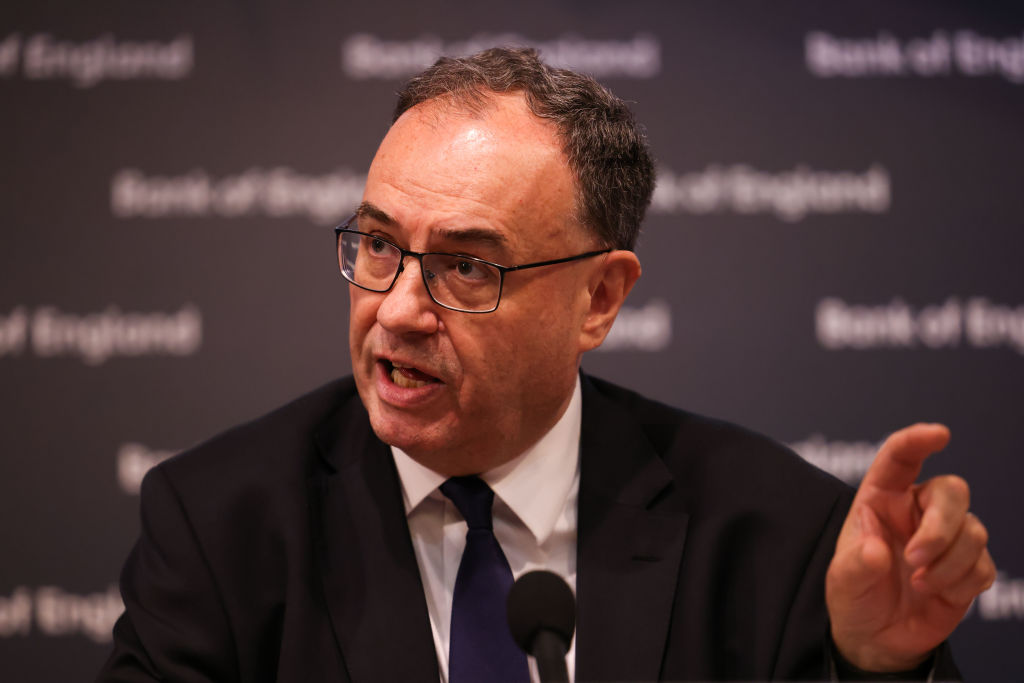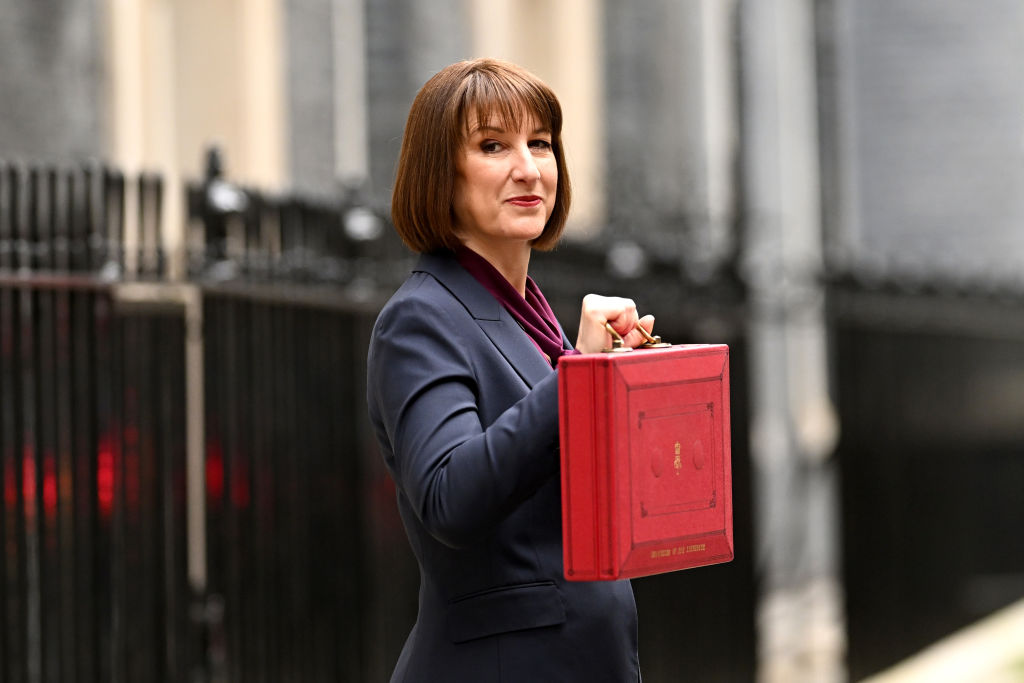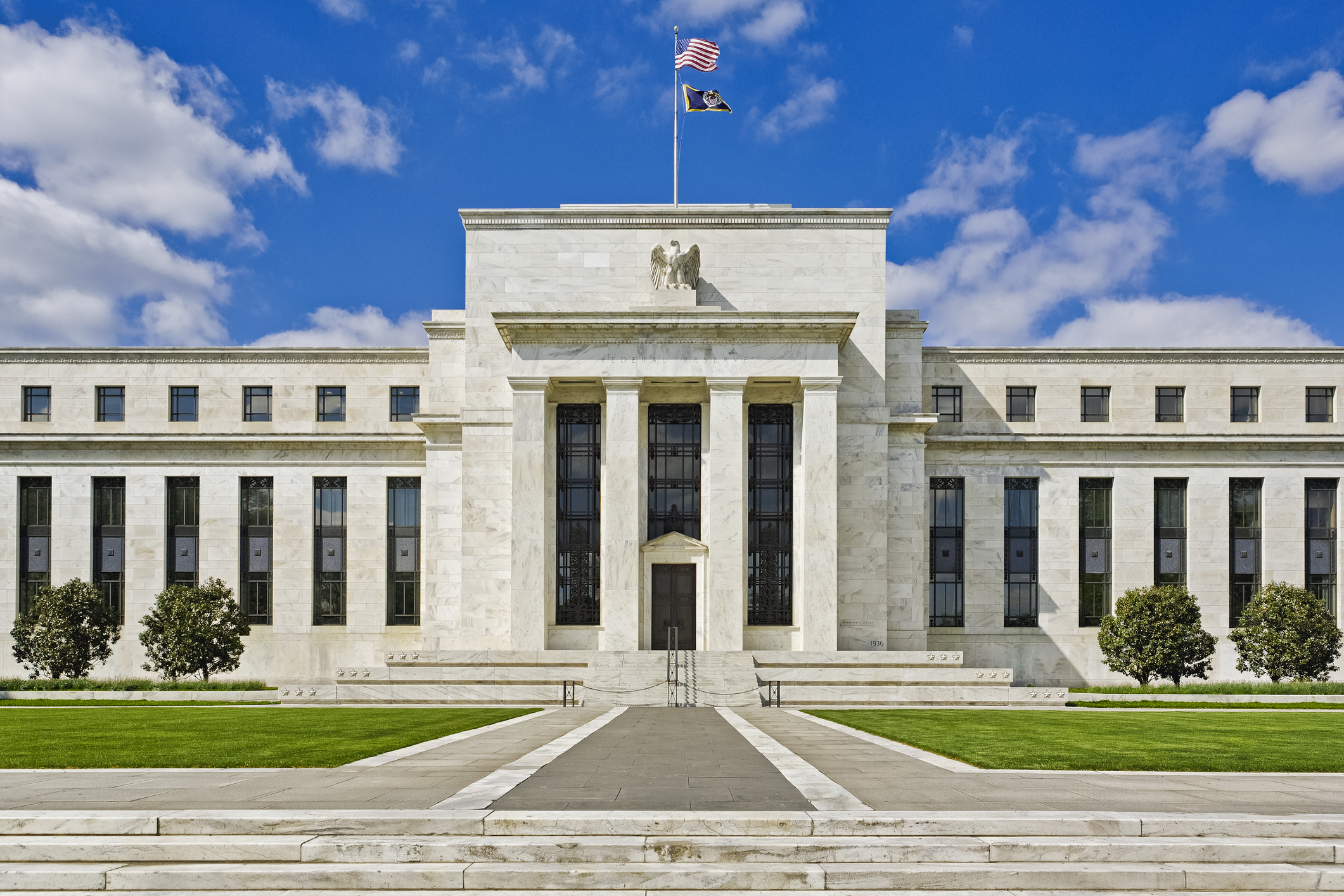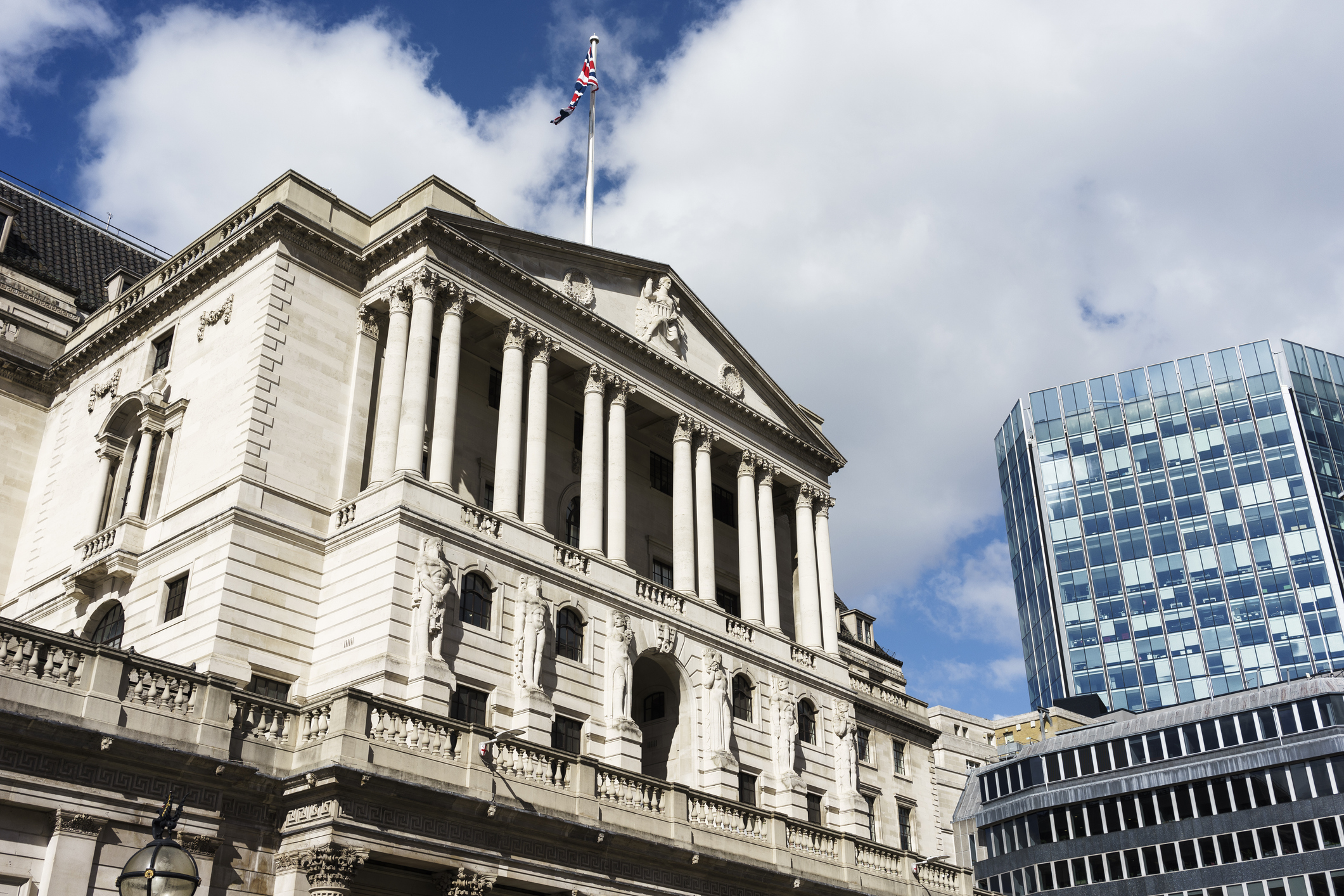Summary of the Monetary Policy Committee November meeting
- The Bank of England cut interest rates to 4.75%, as widely anticipated.
- It comes after inflation fell below the Bank’s 2% target in September 2024, for the first time in over three years.
- The Monetary Policy Committee (MPC) has cut rates twice this year.
- Before August 2024, the MPC had held the base rate at a 16-year high of 5.25% for over a year.
Scroll for full reporting and analysis from the team at MoneyWeek.
| Latest Bank of England predictions | MPC meeting dates | Inflation forecast |
Good Wednesday morning, it’s Katie Williams and Ruth Emery here reporting from MoneyWeek’s live blog. Interest rate day is almost upon us. At midday tomorrow, the MPC will announce whether it has decided to cut rates or keep them on ice at 5%.
Stay with us as we bring you the latest forecasts in the lead-up to the announcement. We’ll also be analysing what each result could mean for your personal finances.
Will the MPC cut rates tomorrow?
Markets are confident that rates will be cut by 25 basis points tomorrow, taking the base rate to 4.75%. But we won’t know for sure until the announcement is made.
When the MPC last met in September, the committee voted to hold rates by a decisive 8-1 majority. Have there been enough economic developments over the past seven weeks to persuade four members to change their vote? Let’s take a closer look.
Inflation below target in September
September’s inflation report moved the dial in favour of a November rate cut. The Consumer Prices Index (CPI) came in at 1.7% on an annual basis in September. This was the slowest rate of inflation in over three years, coming in below the Bank of England’s 2% target.
It is worth remembering that prices were rising by around 11% when inflation peaked a couple of years ago. We have made significant progress from that point.

The largest downward contribution to the monthly change in CPI in September came from the transport sector. Air fares fell by 34.8%. Petrol and diesel prices also fell by 5.5p and 6p per litre respectively.
What about the services sector?
More significantly, services inflation also slowed from 5.6% to 4.9% in September, coming in comfortably below the Bank of England’s 5.5% forecast.
The MPC has been watching this figure closely, as the services sector accounts for around 80% of UK economic output. Services inflation has been particularly sticky in previous reports, suggesting an ongoing problem with inflationary pressures in the domestic economy.
Time for some aggression?
Everything was shaping up nicely for a November rate cut, particularly in light of comments made by the governor of the Bank of England last month. Andrew Bailey told The Guardian that UK policymakers could become a “bit more aggressive” with rate cuts if inflation continues to cool.

Governor of the Bank of England, Andrew Bailey
Enter the Budget
Since then, the Autumn Budget has created a bit of a hiccup. Some of the measures announced by chancellor Rachel Reeves are likely to prove inflationary.
Reeves announced plans to increase government spending by £70bn annually – an attempt to avoid cuts to public services and to fund investment projects.
She also unveiled £40bn in tax hikes, with a large part of this being funded by an increase in employer National Insurance contributions. The concern is that businesses will pass this cost on to consumers by putting their prices up.
Plans to increase the National Living Wage by 6.7% from April could also contribute to inflation by keeping wage growth high.
How much harm can a little red box do?
The independent Office for Budget Responsibility (OBR) said it expects Budget policy measures to “increase inflation by 0.4 percentage points at their peak effect in 2026”.
Meanwhile, economists at consultancy Capital Economics have adjusted their forecasts upwards by 0.2% and 0.1% in 2025 and 2026 respectively.
“The Budget won’t reignite inflation. But it will keep it a little hotter for a little longer than previously looked likely,” chief UK economist Paul Dales told MoneyWeek.

Not exactly an inflation genie, but the little red box could still give the Bank of England pause for thought.
A close decision?
“Following the recent upheaval in bond markets after last week's Budget, we expect a close 5-4 vote in favour of a 25 basis point cut at Thursday’s MPC meeting,” says Steve Matthews, liquidity investment director at Canada Life Asset Management.
“Since the last meeting in September, when rates were held, economic growth and inflation data have softened, though not enough to shift the MPC’s current cautious approach.”
How many MPC meetings are left in 2024?
There are only two MPC meetings left this year – tomorrow and 19 December. Before the Autumn Budget, markets were set on a November rate cut with some experts saying they thought a consecutive cut would follow in December. Is a December cut now out of the question?

Will those hoping for a pre-Christmas rate cut be disappointed?
Back-to-back cuts in November and December now look less likely
“After Thursday’s meeting, we don’t expect fireworks anytime soon with the MPC settling into a quarterly cutting cycle, with the next cut expected in February,” Matthews says.
Longer term, he says that markets have already tempered their expectations and are now forecasting two or three cuts in 2025, down from previous projections of four of five.
What does it mean for your personal finances?
Mortgage holders – especially those due to refix – are desperately hoping for interest rates to fall further. Savers may be less keen, although they will be pleased to see a lower rate of inflation.
Let’s take a closer look at the implications policy can have on your back pocket.
Savings rates – should you fix?
Savings rates have been on a downward trend after peaking last year. Providers reduced their rates in anticipation of cuts from the Bank of England, with further cuts following after the MPC lowered the base rate on 1 August.
Rates are likely to tumble further if the MPC cuts the base rate tomorrow, meaning it could make sense to fix your savings to lock in a higher rate for longer.
The top providers are still offering rates of around 5% (or just under) on their easy-access and one-year fixed accounts. However, these deals are becoming increasingly rare so you may need to act quickly. Shopping around will help you secure the best deal.
See our round-up of the best easy-access and one-year fixed-rate savings accounts.

Fixing your savings could help you lock in higher rates for longer – but remember that you won't be able to access your cash until the fixed period ends.
Currently, savers may find better rates on cash ISAs than regular savings accounts.
- Best easy-access ISA: The Trading 212 and Moneybox Cash ISAs both pay 5.17%.
- Best easy-access savings account: The Cahoot Sunny Day Saver and the Chip Easy-Access Saver both pay 5%.
Although fixed rates are slightly lower than easy-access rates at the moment, they offer savers a guaranteed rate. This could prove advantageous when interest rates fall further. Meanwhile, the variable rate on an easy-access account can be slashed at any time.
- Best one-year fixed account: The Atom Bank One-Year Fixed Saver pays 4.8%.
What about mortgage rates?
Mortgage rates have fallen significantly from their peak last summer, and came down further in the aftermath of the base rate cut on 1 August. Despite this, they remain higher today than they have been for much of the past decade.
The average two-year fixed rate is currently 5.40%, according to Moneyfacts. The average five-year rate is 5.11%.
Why a base rate reduction doesn’t always result in a cut in mortgage rates
Many homeowners and first-time buyers will be crossing their fingers for a base rate cut, believing that it will feed through to lower mortgage rates.
However, Nick Mendes, mortgage technical manager at the broker John Charcol, says a drop in the base rate won’t necessarily result in an immediate reduction in mortgage rates. “When setting their rates, lenders take multiple elements into account, including their service levels, swap rates, and overall market conditions,” he explains.
Mendes adds that after the MPC’s decision, the Bank of England governor’s statement and voting patterns will be analysed, and if the outlook suggests fewer cuts ahead, swap rates may rise. “This could lead to higher mortgage rates even after a Bank rate cut.”
Mortgage rates have risen following last week’s Autumn Budget, with lenders like HSBC, Coventry Building Society and Virgin Money hiking their rates.

Around 1.6 million borrowers are due to re-mortgage this year as their fixed-rate deals expire.
How will equity markets respond to a rate cut?
Rate cuts are generally good news for equity markets, as they ease borrowing costs for businesses and can help invigorate the economy, boosting earnings. However, markets tend to price this sort of information into valuations in advance.
Investors don’t just focus on a single event, but consider how quickly and how dramatically central banks will cut rates over a period of time.
They also look at how one region’s rate path compares to others worldwide.
How has the FTSE 100 performed today?
The FTSE 100 opened higher this morning in response to the US election outcome, but has since fallen back as investors digest the full implications of a Trump win. By market close, the index was pretty much level with yesterday.
Trump has threatened to impose additional tariffs on imported goods. Tariffs often disrupt supply chains and can prove inflationary.
According to widely-quoted research from the National Institute of Economic and Social Research (NIESR), UK inflation could be 3-4 points higher over the next two years if Trump imposes the tariffs that have been threatened. Interest rates could be 2-3 points higher.

The FTSE 100 has largely been driven by the US election outcome today.
Thank you for joining us on our live blog today. We will be back with further analysis tomorrow morning ahead of the MPC decision at midday. Have a lovely evening!
Good Thursday morning, and welcome back. It’s Katie Williams and Ruth Emery reporting on our live blog again today. It’s a gloomy November morning here in London but a rate cut at midday could brighten the outlook for many. Stick with us as we share our analysis.
Where next for inflation?
Inflation slowed to below the Bank of England’s 2% target in September – but where is it forecast to go next? Unfortunately, October’s CPI report (due on 20 November) is unlikely to look quite so good.
Household energy prices went up at the start of October, when the Ofgem price cap surged by 10%. This will feed through into the October data.
“When measured against a fall a year earlier, it’s going to look particularly grim,” says Sarah Coles, head of personal finance at Hargreaves Lansdown.

Will the rise in energy prices keep inflation hot?
Looking beyond today’s MPC meeting, how will the expected uptick in inflation impact the December interest rate decision?
Two more CPI reports are due before then, one on 20 November and one on 18 December. The Bank of England will be analysing this information closely.
It’s likely the Bank will be less concerned with the headline rate of inflation than metrics like core and services inflation. It wants to see evidence that domestic inflationary pressures are continuing to wane.
The next wage growth reports will be important too, as rising wages are another domestic driver of inflation.
That said, markets have turned bearish on the idea of back-to-back rate cuts in November and December in the wake of the Autumn Budget.
Most experts now think we will end the year with rates at 4.75%.
What are economists saying?
In the latest poll from news agency Reuters, all 72 economists said they expect the Bank of England to cut rates to 4.75% today.
Almost two-thirds (46 out of 72) said they expect rates to be kept on hold at the subsequent meeting in December.
It is worth mentioning that the poll was conducted between 22 and 28 October, before the Autumn Budget took place.
Another rate decision across the pond
The Bank of England isn’t the only central bank to make a rate decision today. We will hear from the US Federal Reserve too. The Fed is also expected to announce a quarter-point cut. This would take the federal funds rate down to a range of 4.5-4.75%.
“Perhaps of more importance will be comments about the future direction of travel with markets now expecting only two further cuts in 2025, due to the impact of a fresh Trump presidency with tariff hikes and tax cuts which are expected to be inflationary,” says Derren Nathan, head of equity research at Hargreaves Lansdown.

It has been anything but a quiet news week over in the US.
Back to the Budget
How much attention will be given to the Budget in the MPC minutes and summary document? Most commentators don’t think the Budget will influence the outcome of today’s decision, but it could slow the pace of cuts going forward.
“If a Budget the size of Labour’s had come out of the blue then we would very much expect the Monetary Policy Committee to be more cautious with cutting rates. However, given that the Budget was heavily signposted it is unlikely to be enough to stop an interest rate cut today,” says William Marshall, chief investment officer at financial services company Hymans Robertson.
“That being said, the extent of the size of the borrowing communicated in the Budget may have slightly surprised the MPC, given that Rachel Reeves hinted that she would not borrow for day-to-day spending,” he adds. “The consequence is that we may see a slower pace of rate cuts next year.”
BREAKING: BoE cuts rates to 4.75%
MPC voting split
The MPC voted for the rate cut by a decisive 8-1 majority. Only Catherine Mann voted against the decision, preferring to hold the base rate at 5%.
The MPC is still cautious
Despite cutting rates today, the MPC isn’t throwing caution to the wind. In its summary comments, it repeated a message it had put out before.
“Based on the evolving evidence, a gradual approach to removing policy restraint remains appropriate. Monetary policy will need to continue to remain restrictive for sufficiently long until the risks to inflation returning sustainably to the 2% target in the medium term have dissipated further.”

Interest rates are unlikely to return to the ultra-low levels experienced in the post-2008 environment – at least not any time soon.
What did the MPC say about the Budget?
The committee appears to have discussed the Budget and its impact on the economy at length, with specific reference to the National Living Wage and employer National Insurance contributions.
This influenced Catherine Mann’s decision to vote against the cut. She expressed concern about wage growth and price-setting dynamics.
Her argument is summarised in the meeting minutes: “In the face of these uncertainties, maintaining the current level of Bank Rate would allow time to evaluate whether these upside pressures would materialise.”
Mann was outnumbered 8-1.
Patience may be required going forward
“Today’s rate cut was nailed on, but households may have to be more patient for borrowing costs to fall over the next year,” says Ed Monk, associate director at financial services company Fidelity International. “Today’s Monetary Policy Report forecasts another rise in inflation to 2.75% – back above target – over the next year.”
What does a rate cut mean for UK equities?
“Lower rates in the UK should be good news for domestically-focused British companies, which are more prevalent in the FTSE 250 than the FTSE 100,” says Rachel Winter, partner at financial services company Killik & Co.
“That said, the international companies in the FTSE 100 will benefit from the recent strength of the dollar, as they earn revenue in dollars and report their profits in sterling,” she adds.
Winter points out that markets are still adjusting to the latest political developments, including the UK Budget and US presidential election. Against a volatile backdrop, portfolio diversification is more important than ever.

A large number of companies in the FTSE 100 operate globally, meaning the FTSE 250 is more exposed to the domestic economy.
Another warning for savers
Savings rates are likely to tumble further in the wake of today’s base rate cut. Moneyfacts data shows that the average rates are currently as follows:
- Easy-access saver: 3.03%
- Easy-access ISA: 3.23%
- One-year fixed saver: 4.22%
- One-year fixed ISA: 4.07%
These are just the average rates based on a balance of £10,000. You can secure a better deal by shopping around – but you may need to act quickly as rates are being pulled all the time.
If you don’t need to access the cash in the short term, you could consider opting for a fixed-rate account to lock in a higher level of interest for longer.
Mortgage rates could continue to rise
Mortgage rates have been on the rise since the Autumn Budget and the US election. Variable-rate deals will come down on the back of today’s news, but experts warn that the rate cut could actually lead to lenders hiking their fixed mortgage rates.
David Hollingworth, associate director at L&C Mortgages, comments: “Last week’s Budget and the US election have added a hint of uncertainty around future rate movements. That has already caused a flurry of price changes to feed through with most resulting in fixed rates being hiked.
“That is likely to continue unless markets are reassured by today’s decision and funding costs ease back.”
Sarah Coles, head of personal finance at Hargreaves Lansdown, adds: “The Bank says it’ll keep an eye out for inflationary risks, and the market is pricing in fewer cuts between now and the end of 2025. We’re likely to see some repricing to reflect that – so mortgage rates could rise again.”

Mortgage holders might not see the results they were expecting after today's base rate cut, experts warn.
How will the rate cut affect annuities?
A cut in interest rates can lead to a fall in annuity rates, but annuity incomes are actually at a two-year peak. This is thanks to long-term gilt yields, which have risen off the back of the Budget and are keeping annuity rates high.
Could today’s announcement lead to a dip in annuity rates? Helen Morrissey, head of retirement analysis at Hargreaves Lansdown, comments: “We may see some downward pressure in the coming weeks but with news that the path for future cuts will be slow and steady we can expect annuities to remain attractive for some time yet.”
Thank you for joining us on our live blog today. All eyes are now turning to the US Federal Reserve, which will make its own interest rate announcement in just under two hours' time.
Over here in the UK, there is only one MPC meeting left before the end of the year. This will take place on 19 December. We will be back then with more live analysis.

